
-
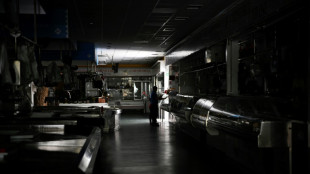 Spain brought to a halt by huge blackout
Spain brought to a halt by huge blackout
-
Stock markets mostly higher amid trade talk hopes
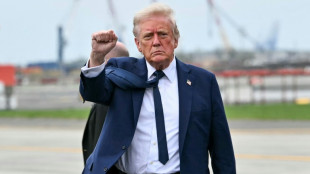
-
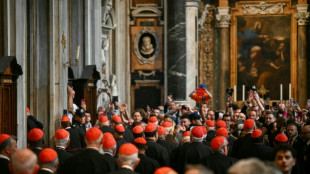 Conclave starts May 7, with cardinals saying new pope must tackle abuse
Conclave starts May 7, with cardinals saying new pope must tackle abuse
-
Massive blackout hits Spain and Portugal
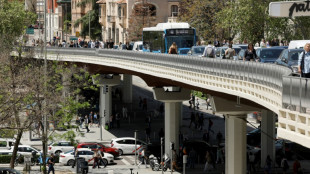
-
 Ruediger 'must show respect to others' says Germany boss Voeller
Ruediger 'must show respect to others' says Germany boss Voeller
-
As Canada votes, Trump pushes US takeover plan
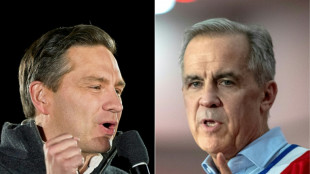
-
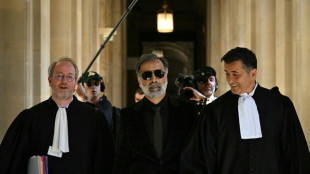 Ten on trial in Paris over 2016 gunpoint robbery of Kim Kardashian
Ten on trial in Paris over 2016 gunpoint robbery of Kim Kardashian
-
African players in Europe: Salah scores, takes selfies as Reds seal title

-
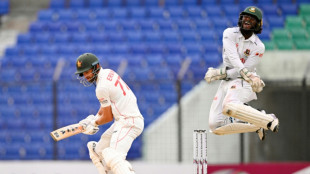 Bangladesh spinner Taijul's 5 wickets trigger Zimbabwe collapse in 2nd Test
Bangladesh spinner Taijul's 5 wickets trigger Zimbabwe collapse in 2nd Test
-
French mosque murder suspect, 21, surrenders in Italy
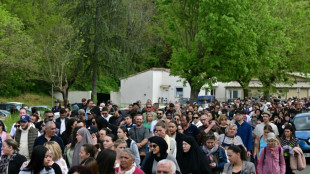
-
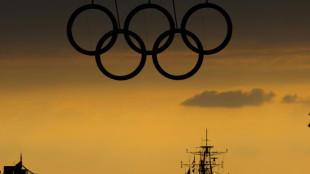 Mayor Khan keen for London to make Olympics history
Mayor Khan keen for London to make Olympics history
-
Iranian president visits Azerbaijan as ties warm
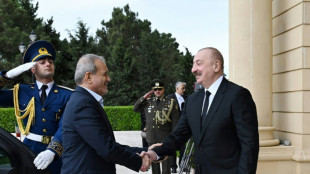
-
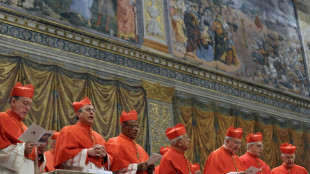 What we know ahead of the conclave
What we know ahead of the conclave
-
Jannik Sinner launches foundation supporting children

-
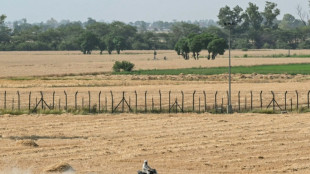 Villagers on India's border with Pakistan fear war
Villagers on India's border with Pakistan fear war
-
Putin announces surprise Ukraine truce for May 8-10
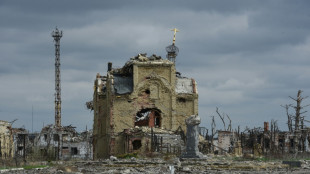
-
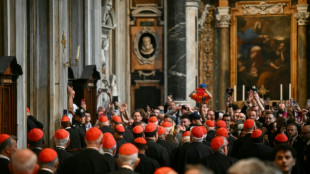 Conclave to elect new pope starts May 7
Conclave to elect new pope starts May 7
-
Stock markets mostly rise amid trade talk hopes
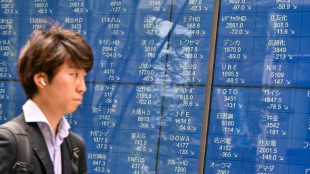
-
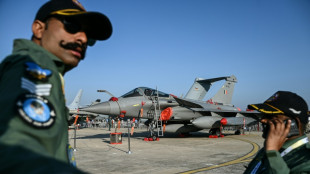 India says signs deal with France for 26 Rafale fighter jets
India says signs deal with France for 26 Rafale fighter jets
-
Trump's deep-sea mining order violates global norms: France
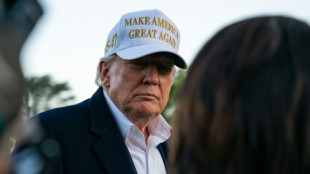
-
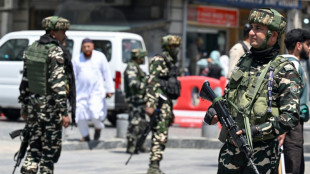 India Kashmir crackdown sparks anger as Pakistan tensions escalate
India Kashmir crackdown sparks anger as Pakistan tensions escalate
-
Russia says claims over annexed Ukraine regions key to peace
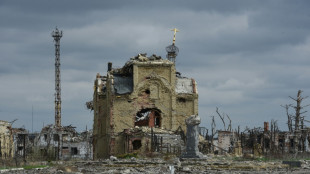
-
 Austrian climber dies on Nepal mountain
Austrian climber dies on Nepal mountain
-
Fires rage 2 days after Iran port blast killed 46

-
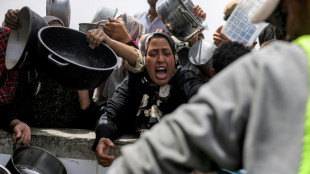 Palestinian official tells ICJ Israel using aid blockage as 'weapon of war'
Palestinian official tells ICJ Israel using aid blockage as 'weapon of war'
-
France arrests 25 in police raids after prison attacks
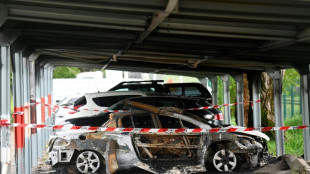
-
 Kim Kardashian's next star turn is in a Paris courtroom
Kim Kardashian's next star turn is in a Paris courtroom
-
Syria group says military chief arrested in UAE
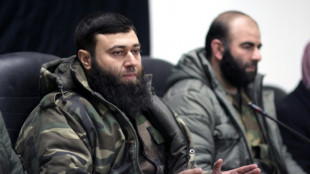
-
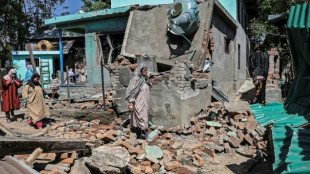 Anger in Indian Kashmir at demolitions and detentions
Anger in Indian Kashmir at demolitions and detentions
-
Italy bank merger wave heats up as Mediobanca eyes Banca Generali
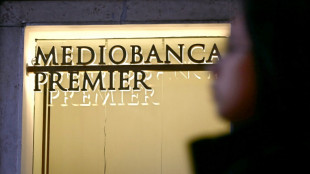
-
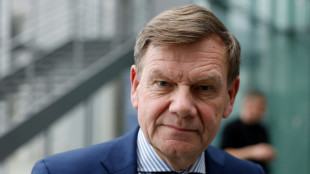 Putin critic Johann Wadephul, Germany's incoming foreign minister
Putin critic Johann Wadephul, Germany's incoming foreign minister
-
Cardinals expected to pick conclave date to elect new pope
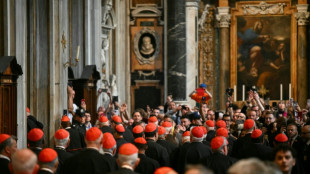
-
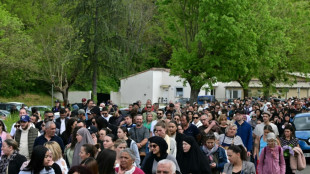 French mosque murder suspect arrested in Italy
French mosque murder suspect arrested in Italy
-
China says on 'right side of history' in trade standoff with US

-
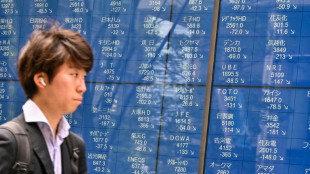 Stock markets mostly rise as investors eye trade talks
Stock markets mostly rise as investors eye trade talks
-
Fires rage 2 days after Iran port blast killed 40
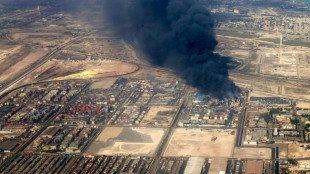
-
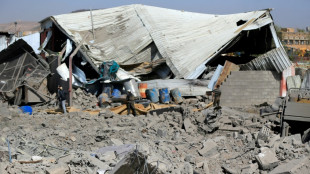 Yemen's Huthi rebel media says 68 killed in US strikes on migrant centre
Yemen's Huthi rebel media says 68 killed in US strikes on migrant centre
-
Man rescued from Mount Fuji twice in one week: reports

-
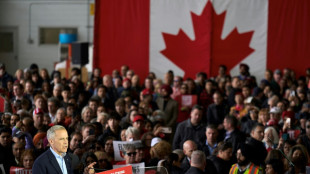 Canada votes for new government to take on Trump
Canada votes for new government to take on Trump
-
Top UN court to open hearings on Israel's aid obligation to Palestinians
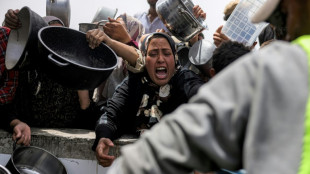
-
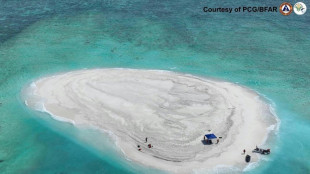 Philippines denies 'irresponsible' Chinese report on disputed reef
Philippines denies 'irresponsible' Chinese report on disputed reef
-
T'Wolves win to push Lakers to brink, Celtics, Knicks and Pacers win

-
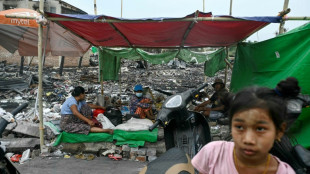 Myanmar marks month of misery since historic quake
Myanmar marks month of misery since historic quake
-
South Korea's SK Telecom begins SIM card replacement after data breach

-
 Women's flag football explodes in US as 2028 Olympics beckon
Women's flag football explodes in US as 2028 Olympics beckon
-
'Hunger breaks everything': desperate Gazans scramble for food
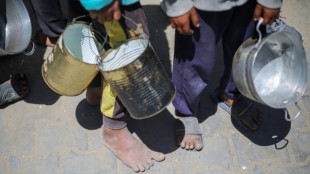
-
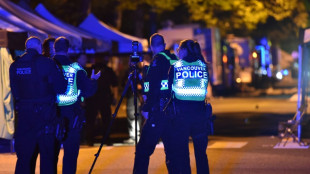 Suspect charged with murder in Canada car attack that killed 11
Suspect charged with murder in Canada car attack that killed 11
-
Lost to history: Myanmar heritage falls victim to quake

-
 Romania far-right rides TikTok wave in election re-run
Romania far-right rides TikTok wave in election re-run
-
Trial begins in Paris over 2016 gunpoint robbery of Kim Kardashian


EU embargo on Russian oil, gas will take 'months'
The EU is working on broadening sanctions on Russia to include oil and gas embargoes but such measures would take "several months", European officials told AFP on Friday.
The bloc last week announced a ban on Russian coal in a first step against Russian energy exports -- together, Moscow's main hard currency earner.
But the coal sanction only kicks in from mid-August, and would hit around eight billion euros ($8.7 billion) in Russia's sales abroad, annually.
Russian oil and gas sales to the EU account for a far higher amount of revenue: between a quarter of a billion to a billion euros per day, per different estimates.
Public and political opinion in the EU is swinging towards a total energy ban as Moscow's war in Ukraine grinds on and yields discoveries of atrocities.
An EU official involved in discussions on cutting Russian energy imports said the European Commission is "thinking about options". Commission chief Ursula von der Leyen has already come out publicly in favour of targeting Russian oil.
But, the official said, "adopting measures on oil means undoing existing contracts, finding alternatives and preventing circumvention".
"That can't be don't overnight. It requires at least several months."
- Outrage over war -
Building EU outrage over the war is sweeping aside hesitation by the member states reliant on Russian oil and gas, such as the bloc's biggest economy Germany, and Italy, Greece and Austria.
Some EU countries, such as Lithuania, have already announced national bans on Russian oil and gas.
One option to quickly stall revenues going to Russia's war could be to pay for energy imports through an escrow account, which Moscow wouldn't be able to touch until a postwar settlement.
But there is also thinking about how Russia might retaliate, by cutting supplies to Europe, or -- as President Vladimir Putin said this week -- selling more to Asia.
In any case, it's clear that European industry and consumers will have to consume less oil and gas -- something economists call "demand destruction".
"Cutting demand will have an impact with price hikes," another EU official said, echoing comments from several ministers in the bloc.
They noted that the EU's main ally in the sanctions, the US -- which a month ago imposed its own ban on Russia's energy imports -- is leery of petrol price rises for American drivers.
"What's more, if Russia sells oil snubbed by the Europeans to other buyers, the sanctions won't work," one EU official said.
The Europeans and Americans are looking to avoid the sanctions being weakened by China and India.
Brussels is telling Beijing and New Delhi the EU would find it "difficult to accept partners who undermine the sanctions," one EU diplomat said.
- EU unity -
At the same time, the EU is intent on preserving unity among its 27 member states as it navigates sensitive national interests on energy.
Yet determination to target Russian energy was evident at the last meeting of EU foreign ministers on Monday in Luxembourg.
"The European Union is spending hundreds of millions of euros on importing oil from Russia -- that is certainly contributing to financing this war," Irish Foreign Minister Simon Coveney said at that meeting.
"In our view, we need to cut off that financing of war, even though it creates huge challenges and problems for the EU to solve together."
EU foreign policy chief Josep Borrell said after the meeting that "nothing is off the table, including sanctions on oil and gas" but no decision was yet made.
Borrell said that, in 2021, the EU paid Russia $80 billion (74 billion euros) for oil and $20 billion for gas -- which would work out as an average of 250 million euros per day.
Other European sources, including MEPs, have spoken of Russian fossil fuel imports to the value of up to 700 million euros per day.
Figures vary depending on what period of time is being looked at, contract prices versus market spot prices, and currency valuations.
A spike in energy demand as Covid-19 restrictions were eased made energy prices jump even before the war in Ukraine.
The International Energy Agency said that, in 2021, the EU imported 155 billion cubic metres of gas from Russia, representing 45 percent of its gas imports.
The World Economic Forum says the EU gets over a quarter of its imported crude from Russia, but volumes have been dropping over the past decade.
D.Kaufman--AMWN